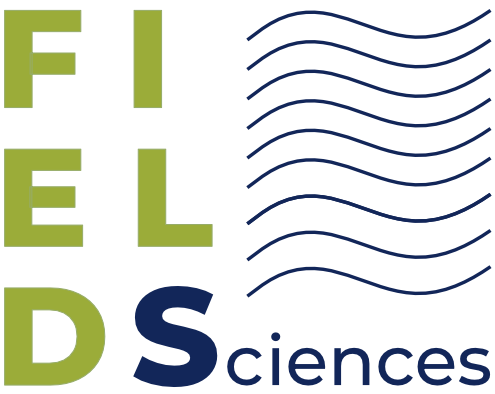The FIELDS Project

Short Description
“What’s in a field?” Well, quite a lot! Fieldwork, or field-research belong to the oldest, however slightly unnoticed every-day scientific practices. A “field” is manifolded: It does not only describe a concrete material space of empirical exploration, but also an epistemic framework, carrying complex features of methodological approaches for the understanding of human- and / or environmental dynamics. In the history of science, field-research was assigned a pivotal role: Biologists and geographers were, by the start of the 20th century, the first to assign their inquiries around specific landscapes and marine areas. Soon after, anthropology and sociology translated the field approach into the study of particular societies, cities and social milieus. As the pragmatists William James and John Dewey would have put it, knowledge, to field-researchers, either naturalists or social scientists, was something experienced rather than solely produced through thinking and writing; a practice of apprehending the environment. What they shared was their curiosity for the unknown, for serendipity, but also a methodological reluctance towards their respective fellow “armchair”-colleagues, who preferred to produce “second-hand” knowledge by reading and analysing accounts from others, instead of immersing themselves and explore the fascinating – and often somewhat frightening – livelihoods in situ.
However, despite these historical and epistemic commonalities, the modern organization of research and higher education produced not only the consolidation of science in general, but also a profound fragmentation between the natural, on the one, and the social sciences, on the other hand. Yet, facing the Anthropocene, here understood as the era of planetary destruction of the ecological foundations of life on earth, this fragmentation has turned out to be a fundamental problem. Collaborative approaches linking the natural and the social sciences are not only urgently needed to bring into dialogue science and society but also to develop instruments that help to transform fossile modernities into ecologically sustainable knowledge-societies. In the project, we focus on ocean-societal relations.
Project Objectives
The FIELDS-project "Experiencing Nature and Society. A Multi-sited Inquiry into Marine and Ethnographic Field Sciences" attempts to asses and re-think different modes of approaching and exploring “fields” as generators of experience-based knowledge through an inter-and transdisciplinary lens. The project explores practices and understandings of ethnographic and marine biology concepts of doing field research (for instance, within oceanic campaigns and expeditions, or at a marine biological station) through an experimental framework in which nature and society, humans and non-humans meet. We understand “FIELDS” as an assemblage-term, where disciplinary fragmented empirical approaches meet to research in situ within determined places. Our objectives are three-folded, representing the three research-phases of the project: To explore, firstly, current ethnographic and marine biological “field” conceptions (phase I); to systematize, secondly, these conceptions and map disciplinary heterogeneous field approaches (phase II), and, thirdly, to carve out their epistemic and methodological commonalities to make them productive for the development of a collaborative interdisciplinary "third knowledge space" (phase III).
In pursuing these goals, we develop a conceptual contribution to the heuristics of what we call “field sciences” in order to establish an integrative methodology of field research to support project-based collaborations between environment-related natural and social sciences. Thus, the “third knowledge space” transgresses the disciplinary fragmentation through a foundational study on the hidden commonalities between natural scientific and social scientific methodologies. Yet, this “third knowledge space” is not limited to the domain of interdisciplinary cooperation. Moreover, we also hope to gain insights and methodical output that can be of use for projects working at the intersection between science and society – for instance, when it comes to conflicts of interest between ecological and economical sustainability at coastal zones, where marine biodiversity conservation must also take into consideration the economic welfare and geo-political situation of a particular region. Linking such local challenges with global ones, the project is in line with the Ocean Decade (2021-2030) declared by the United Nations, supporting transformative solutions for ocean conservation across disciplines and geo-political areas.
Methodology
To achieve these goals, we investigate the understanding and practice of fieldwork in different locations (Europe and overseas). We use and combine a large variety of methods: Participant observations, focus group discussions and qualitative interviews, Literature and document analyses (MAXQDA, fieldwork activity log), institutional mapping and assessing, flash poll, analysis of quantitative data, interdisciplinary cross-site workshops on research findings, and development of co-laborative formats, as, for instance, interdisciplinary learning cabinets.
FIELDS is based on pragmatism and further social-theoretical approaches combining praxeology with science and technology studies (STS), anthropologies of nature, sociological system theory and theories of social cohesion. We understand field research as intimately linked with the pragmatist idea of the epistemic entanglement between experience and knowledge. Simultaneously, “FIELDS” explores the experimental challenges of doing heterogeneous cooperation, that is, bringing into dialogue people, concepts and non-humans from epistemically, as well as social-culturally disparate backgrounds. The question on how these disparities could be overcome through pragmatic integration and empowerment is one of the most difficult, yet also most fascinating socio-political endeavours of our time. FIELDS addresses them through a systematic development of situated interdisciplinary expertise combined with public engagement. For more information on our methodology, see also LITERATURE.
Project duration
04.2022 – 03.2025
Funding Source

